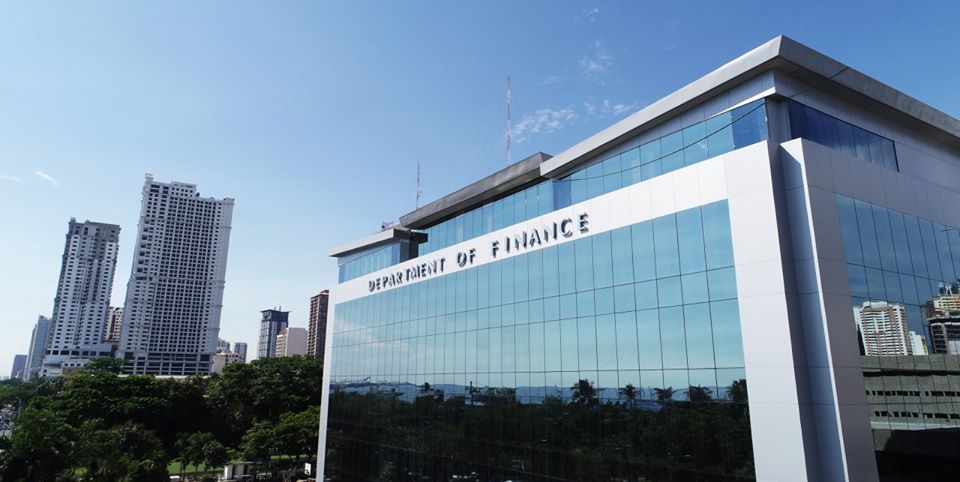DOF: More aid, suspended oil tax would have bloated PH debt to P15.4T in 2022
MANILA, Philippines—Had President Rodrigo Duterte allowed more cash aid to be given away amid the prolonged pandemic while scrapping oil taxes when global prices jumped to record highs, the Philippines’ public debt would have jumped to a much-bigger P15.4 trillion this year, the Department of Finance (DOF) said on Monday (June 6).
“The government has consistently exercised fiscal prudence in responding to the COVID-19 pandemic. We spent what we had to, but not more than what we could afford. In fact, had we acquiesced to pressure for us to spend more, our debt would have increased by P2.2-trillion more and reached P15.4 trillion,” the DOF’s chief economist, retired undersecretary Gil Beltran, said in a statement.
The national government’s outstanding debt had been projected to hit a new high of P13.2 trillion by yearend. Even if the economy would grow by 7 to 8 percent as targeted in 2022, the debt-to-gross domestic product (GDP) ratio — a better measure of a country’s capability to repay its obligations — would further rise to 60.9 percent, from the 16-year-high of 60.5 percent last year.
Debt-to-GDP already reached 63.5 percent in the first quarter — the highest since end-2005’s 65.7 percent — as debts climbed 17.7 percent year-on-year during the first three months and outpaced the better-than-expected first-quarter GDP growth of 8.3 percent. The end-March ratio remained above the 60-percent threshold deemed by debt watchers as manageable among emerging markets like the Philippines.
But DOF’s domestic finance group claimed that “the passage of proposed COVID-19 stimulus bills and other revenue-eroding measures would have led to additional spending or revenue losses of at least P2.2 trillion.”
Besides borrowings, the tax and non-tax revenues being collected by the government finance the national budget.
In particular, the DOF said the proposed bills — whose passage did not prosper — on value-added tax (VAT) exemptions for oil, liquified petroleum gas (LPG), electricity and other commodities, as well as suspension of fuel excise taxes; a number of measures aimed at giving away more subsidies as economic stimulus amid the COVID-19 pandemic; bills that sought exclusion of 13th-month pay, performance-based bonuses (PBB), and other income from taxable income; as well as establishment of new government departments and agencies, would have had further bloated the debt pile.
“The government’s pandemic response strategically targeted the most vulnerable sectors. Financing for the two Bayanihan laws focused on ensuring that the most essential health interventions and emergency economic relief measures for populations most adversely affected by the pandemic were funded fully,” Beltran said, referring to the Bayanihan to Heal as One (Bayanihan 1) as well as the Bayanihan to Recover as One (Bayanihan 2) laws passed in 2020 to respond to the health and socioeconomic crises inflicted by COVID-19.
“Aware of the effects of additional spending on our borrowings, the DOF worked closely with legislators to limit the interventions under Bayanihan 2 to P140 billion, despite the objections of many other stakeholders,” Beltran said.
“The government did not support several stimulus bills, each proposing hundreds of billions of additional appropriations, precisely because we understood that this would translate into further increases in the deficit and debt,” Beltran added.
“To deal with the effects of the pandemic in a strategic and cost-efficient manner, we secured additional financing from multilateral partner-institutions to procure an adequate supply of vaccines for the target population. The accelerated vaccination program, along with shifting to the alert level system with granular lockdowns and increased public transport capacity, enabled us to aggressively reopen the economy and restore jobs,” according to Beltran.
Beltran said the Duterte administration instead pursued what he described as “fiscally sustainable economic recovery programs,” such as the Corporate Recovery and Tax Incentives for Enterprises (CREATE), as well as Financial Institutions Strategic Transfer (FIST) laws.
The outgoing Duterte administration had proposed a fiscal consolidation and resource mobilization plan to president-elect Ferdinand “Bongbong” Marcos Jr. to repay the pandemic-induced ballooning debts and avoid economic and fiscal crises. Fiscal consolidation mainly meant higher or new taxes slapped on consumption plus a three-year deferral of scheduled personal income tax cuts, while slashing public spending on non-priority budget items.

